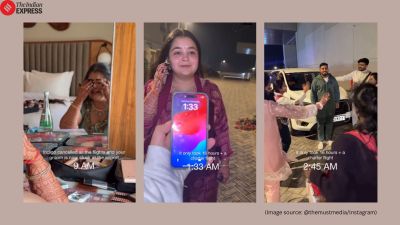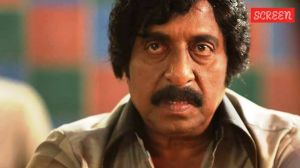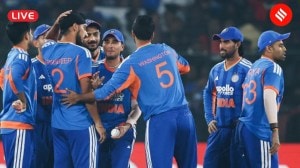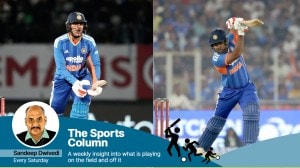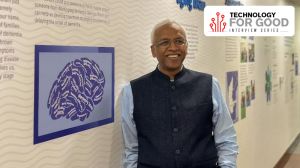Click here to follow Screen Digital on YouTube and stay updated with the latest from the world of cinema.
Dune Part Two movie review: Timothée Chalamet, Zendaya return in a stunning exemplar of cinema’s imagination
Dune Part Two movie review: Timothée Chalamet and Zendaya's film is bigger, bolder and more beautiful as it creates an impossibly perfect setting for a story that can never settle down for one thing.
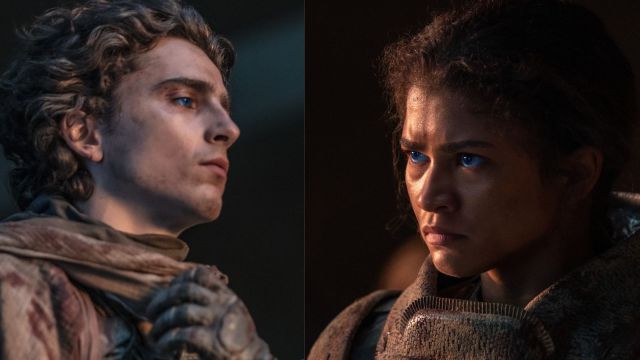 Dune 2 review: Helmed by Dennis Villeneuve, the film has been released in theatres. (Photo:
Warner Bros. Pictures/YouTube)
Dune 2 review: Helmed by Dennis Villeneuve, the film has been released in theatres. (Photo:
Warner Bros. Pictures/YouTube)
There has been much discussion over the years into the politics of the Dune books. Do they excoriate the cult of the hero, or do they only seem to do so, even as a “superior” race proves the bravest of the brave? It’s not easy to walk this thin line in a blockbuster of the audacious scale that Denis Villeneuve has mounted to bring the books to the big screen. Part Two – two long years after the first Dune – is where he gives this a shot.
Part Two is bigger, bolder and more beautiful; its vistas of shimmering sands and chilly shadows (cinematographer Greig Fraser again) creating an impossibly perfect setting for a story that can never settle down for one thing. Chalamet’s Paul Atreides is that perfect putty too, to mould and behold.
One has to doff one’s hat to Villeneuve for not taking his eyes off that transition of Paul, from a boy to a man-boy, to a man who pushes that boy deep down as he becomes a “Messiah”. Is it the screenwriter-director’s fault then that the stuff around is just too spectacular as to overwhelm these little details?
It was the dilemma that the Frank Herbert novels also jostled with, and Villeneuve has it worse given the format, the expectations, the anticipation, the budget, the stars and the template he set himself with his first Dune. In all respects, Part Two is a superior effort, an exemplar of cinema’s imagination and possibilities, from the grandeur of its landscapes to the intimacy of its characters.
There is more of the latter in Part Two as Paul finally meets and gets to spend extended, quiet moments with Chani (Zendaya), the woman he has literally been dreaming about (but with a love that is surprisingly passion-less, unlike the film it inhabits). He also sees his mother, the psychic Jessica (Ferguson), part of a band of the mysterious Bene Gesserits, changing into someone he doesn’t recognise as she scents the prospect of a new future for him and herself.
There is the warm Stilgard (Bardem), a leader of the Fremens, who is determined in his belief, and in his efforts to convince others, that Paul is Lisan al-Gaib, the Messiah prophesied to “lead us to Paradise” – where “water falls from the sky”, for one, and is not extracted out of even dead bodies, to not let a single drop go waste.
Stilgart’s training of Paul (who comes from an ocean planet) to survive their desert planet, to spot and then control, and then ride, the dangerous sandworms that lie under its shifting, endless sands, is exhilarating.
Other characters come and go, including Skarsgård as the Baron Harkonnen, whose corpulence stands in for his bottomless greed; Bautista as his nephew Rabban, still trying to control the Fremen; Butler as the other, charismatic nephew Feyd-Rautha, who has built a reputation for brute cruelty in super quick time; Walken as the Emperor of the Imperium, who has compromised his position after pitting one Great House against another; Pugh as his daughter Princess Irulan, who clearly will have more of a role next time; and Brolin as Gurney Helleck and a father figure to Paul.
That is not counting Anya Taylor-Joy, who is as yet just a foetus in Jessica’s womb, and already asserting herself by talking to both her mother and brother Paul. Evidently, Villeneuve does not have it easy as he weaves these characters into this story of inter-planetary ambitions, wars of dominance, disparate worlds, and countless battles, involving everything from atomic warheads and artillery, to gladiatorial duels and hand-to-hand combats.
View this post on Instagram
He has already shown a flair for this more than once in his previous films, including Dune, Blade Runner 2049 and Arrival. And while the spectacles and blood lust – and, oh, those sandworms – threaten to run away with Dune: Part Two, and the film has less time for exploration of the interior worlds of women, Villeneuve pauses to bravely ask us to look at not just the Messiah but also the little men and women looking up at him.
They dress in robes reminiscent of Arabia, their warriors are called fedaykin, their Messaih is named Muad’Dib, they talk of the “fundamentalists” among them, they are bombed from the skies, and they take refuge – including bloodied women and children – in makeshift shelters. Meanwhile, the war waged by the powers-that-be doesn’t stop.
Princess Irulan ponders about the hold of religious belief, how “repression will only help it flourish”, and the need to let Prophets be because “a dead Prophet is more powerful”. Hence, the Emperor’s strategy: “Let war happen, and then we come in to bring peace.”
View this post on Instagram
Above all, as Chalamet finally grows up in his role – though without acquiring an extra sinew of muscle or facial hair – Villeneuve gives us glimpses of how power can corrupt even the purest of souls. As Paul barks “silence” and commands loyalty, as Chani fears her love has changed like she feared it would, you can see that corruption taking hold.
Dune Part Two movie cast: Timothée Chalamet, Zendaya, Rebecca Ferguson, Javier Bardem, Josh Brolin, Austin Butler, Florence Pugh, Christopher Walken, Dave Bautista, Stellan Skarsgård
Dune Part Two movie director: Dennis Villeneuve
Dune Part Two movie rating: 4 stars
- 0152 minutes ago
- 0212 hours ago
- 0312 hours ago
- 0412 hours ago
- 0512 hours ago



